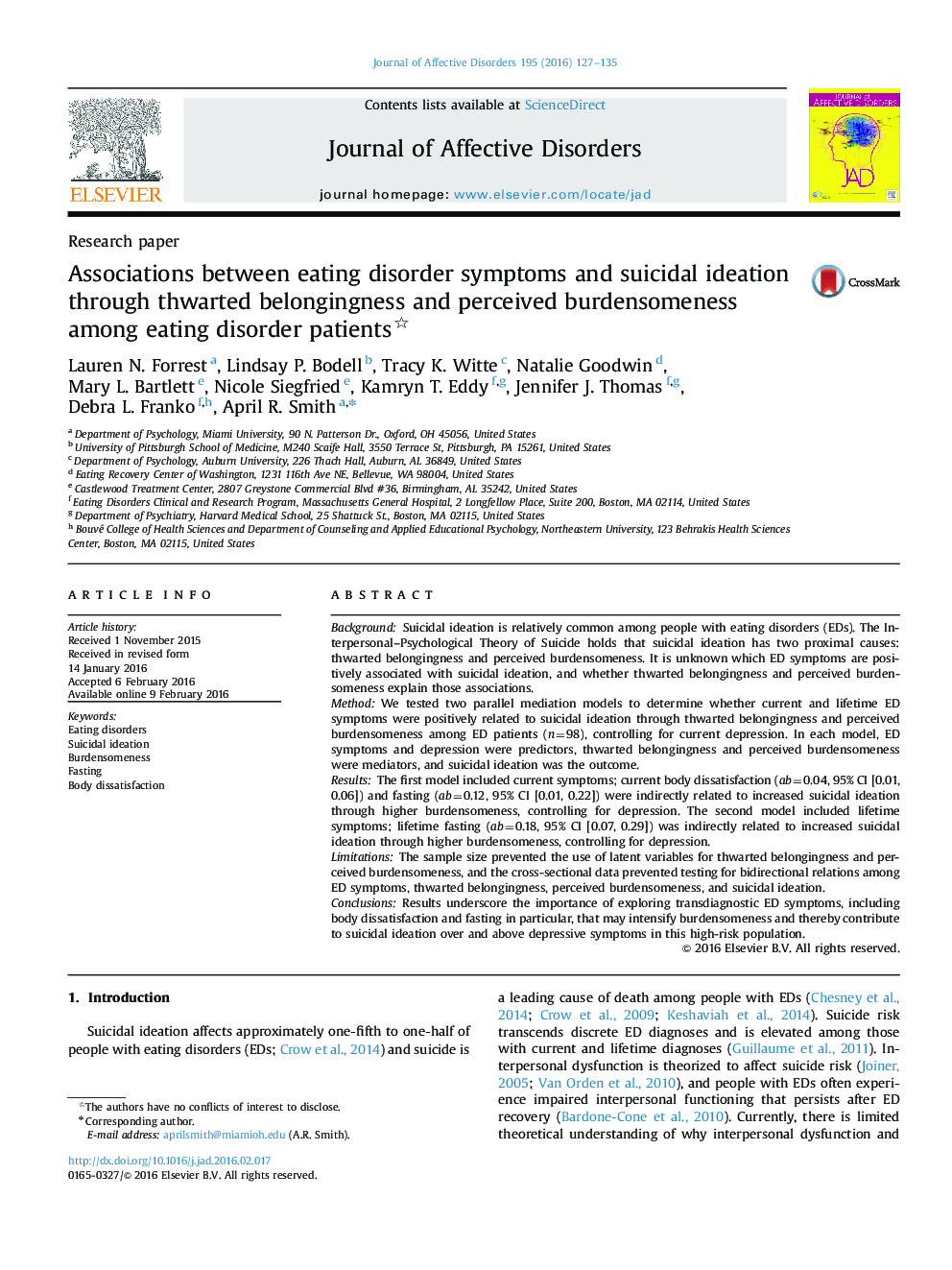| Article ID | Journal | Published Year | Pages | File Type |
|---|---|---|---|---|
| 6230390 | Journal of Affective Disorders | 2016 | 9 Pages |
â¢Eating disorder symptoms are related to thwarted belongingness and burdensomeness.â¢Eating disorder symptoms are related to suicide ideation through burdensomeness.â¢Eating disorder symptoms may affect suicidal behavior by elevating suicide ideation.
BackgroundSuicidal ideation is relatively common among people with eating disorders (EDs). The Interpersonal-Psychological Theory of Suicide holds that suicidal ideation has two proximal causes: thwarted belongingness and perceived burdensomeness. It is unknown which ED symptoms are positively associated with suicidal ideation, and whether thwarted belongingness and perceived burdensomeness explain those associations.MethodWe tested two parallel mediation models to determine whether current and lifetime ED symptoms were positively related to suicidal ideation through thwarted belongingness and perceived burdensomeness among ED patients (n=98), controlling for current depression. In each model, ED symptoms and depression were predictors, thwarted belongingness and perceived burdensomeness were mediators, and suicidal ideation was the outcome.ResultsThe first model included current symptoms; current body dissatisfaction (ab=0.04, 95% CI [0.01, 0.06]) and fasting (ab=0.12, 95% CI [0.01, 0.22]) were indirectly related to increased suicidal ideation through higher burdensomeness, controlling for depression. The second model included lifetime symptoms; lifetime fasting (ab=0.18, 95% CI [0.07, 0.29]) was indirectly related to increased suicidal ideation through higher burdensomeness, controlling for depression.LimitationsThe sample size prevented the use of latent variables for thwarted belongingness and perceived burdensomeness, and the cross-sectional data prevented testing for bidirectional relations among ED symptoms, thwarted belongingness, perceived burdensomeness, and suicidal ideation.ConclusionsResults underscore the importance of exploring transdiagnostic ED symptoms, including body dissatisfaction and fasting in particular, that may intensify burdensomeness and thereby contribute to suicidal ideation over and above depressive symptoms in this high-risk population.
